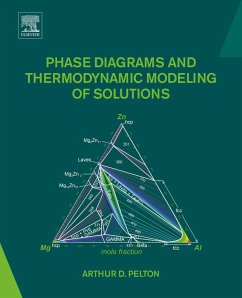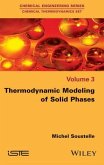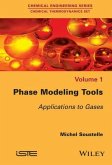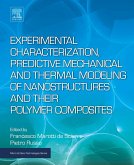Phase Diagrams and Thermodynamic Modeling of Solutions provides readers with an understanding of thermodynamics and phase equilibria that is required to make full and efficient use of these tools. The book systematically discusses phase diagrams of all types, the thermodynamics behind them, their calculations from thermodynamic databases, and the structural models of solutions used in the development of these databases. Featuring examples from a wide range of systems including metals, salts, ceramics, refractories, and concentrated aqueous solutions,
Phase Diagrams and Thermodynamic Modeling of Solutions is a vital resource for researchers and developers in materials science, metallurgy, combustion and energy, corrosion engineering, environmental engineering, geology, glass technology, nuclear engineering, and other fields of inorganic chemical and materials science and engineering. Additionally, experts involved in developing thermodynamic databases will find a comprehensive reference text of current solution models.
- Presents a rigorous and complete development of thermodynamics for readers who already have a basic understanding of chemical thermodynamics
- Provides an in-depth understanding of phase equilibria
- Includes information that can be used as a text for graduate courses on thermodynamics and phase diagrams, or on solution modeling
- Covers several types of phase diagrams (paraequilibrium, solidus projections, first-melting projections, Scheil diagrams, enthalpy diagrams), and more
Dieser Download kann aus rechtlichen Gründen nur mit Rechnungsadresse in A, B, BG, CY, CZ, D, DK, EW, E, FIN, F, GR, HR, H, IRL, I, LT, L, LR, M, NL, PL, P, R, S, SLO, SK ausgeliefert werden.









